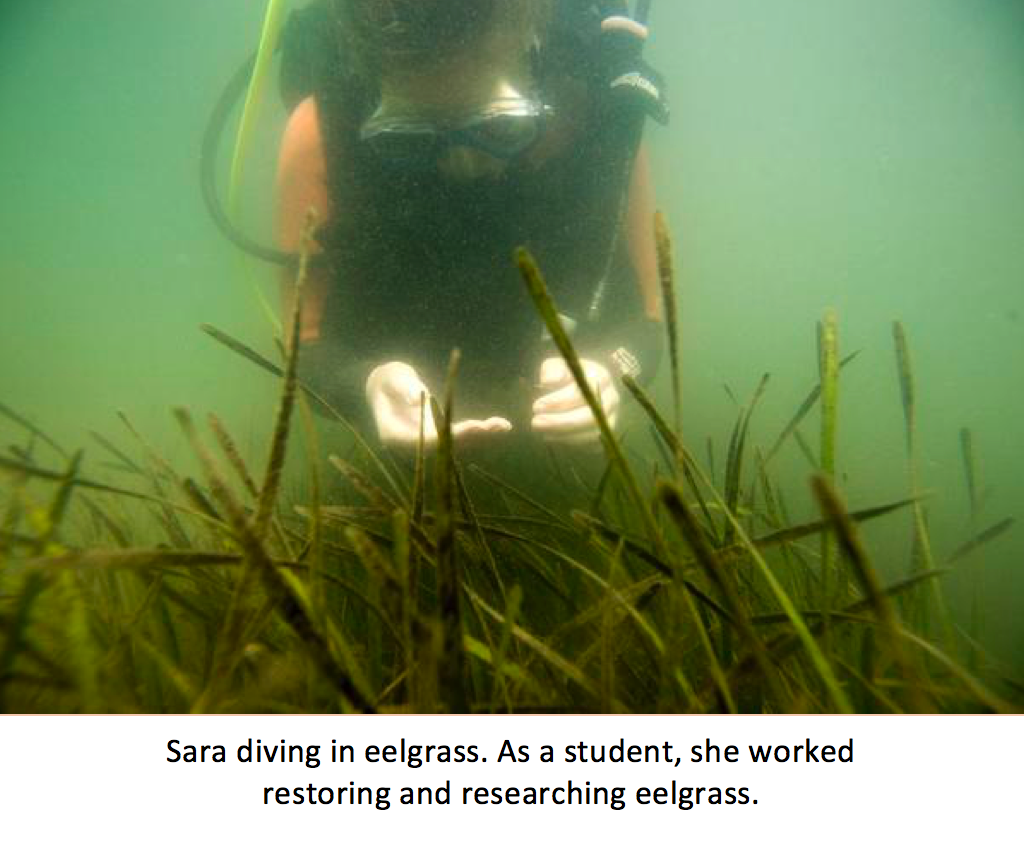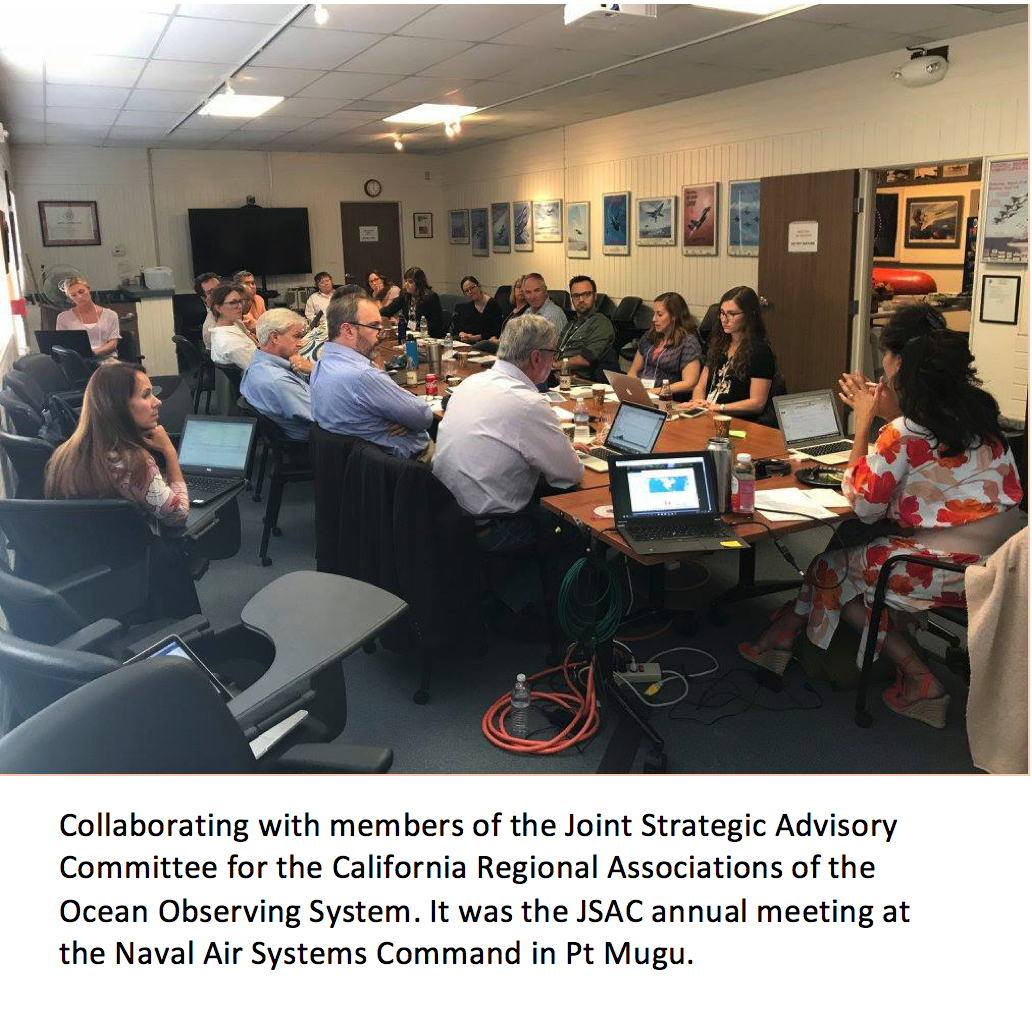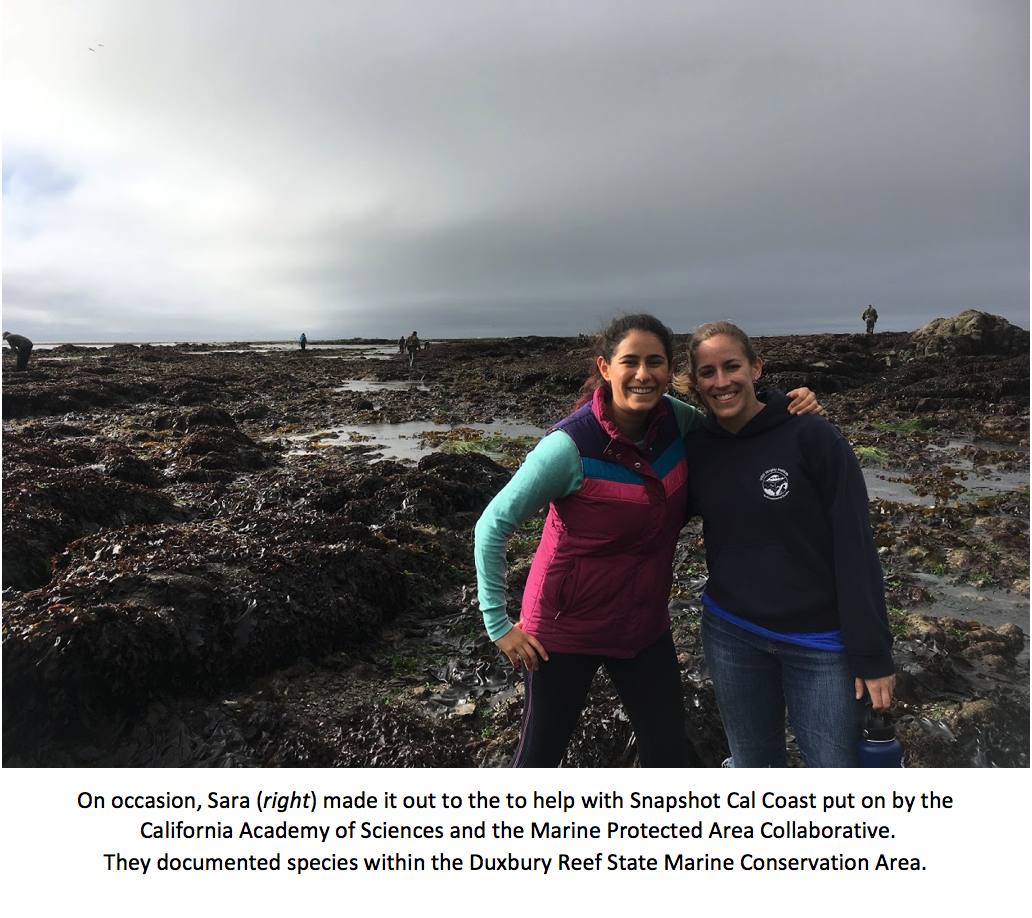Before I started my California Sea Grant State Fellowship, I had a limited background in climate change science. I was drawn to working on climate change issues like sea level rise and ocean acidification, because these issues were already affecting the plants and animals I had spent years studying and restoring.  I wanted to see how policy and management decisions were made on these sorts of large scale and intensifying problems (answer: it is hard, and you use the best science you have) and I wanted to hone the skills necessary to make meaningful change.
I wanted to see how policy and management decisions were made on these sorts of large scale and intensifying problems (answer: it is hard, and you use the best science you have) and I wanted to hone the skills necessary to make meaningful change.
 This year has been full of changes for me. I uprooted my life to live in a new city far from the coast, I replaced my wetsuit with business professional attire, and every day I took the elevator up to my cubicle in a downtown Sacramento high rise.
This year has been full of changes for me. I uprooted my life to live in a new city far from the coast, I replaced my wetsuit with business professional attire, and every day I took the elevator up to my cubicle in a downtown Sacramento high rise.
But the opportunity for change was a big part of why I wanted to be a Sea Grant State Fellow – to branch out from my research background and explore new career paths. This fellowship pushed me out of my comfort zone and challenged me to grasp new scientific concepts and ways of working and communicating like no other experience I had before. I met new people from different professional circles and I got an inside look at how key decisions and policies around our coastal resources are made.
Amidst all of the changes, I was still able to lean on my previous experience and interests to guide some of the direction of my fellowship. With my background in eelgrass research, I was able to plug into several related projects at the Ocean Protection Council. I explored the use of submerged aquatic vegetation as an ocean acidification management tool with a working group of the OPC Science Advisory Team, and I managed grants with several California universities studying the intricacies of eelgrass in mitigating chemical conditions and carbon storage. My interest in ocean acidification monitoring drove me to spearhead an effort building an inventory of all physical, biogeochemical and biological monitoring assets along the West Coast to better understand and improve current monitoring capacity.
If I had one piece of advice for incoming Sea Grant State Fellows, it would be to take advantage of this unique opportunity to get out of your comfort zone and explore new career paths, but find ways to incorporate and build off of your current interests and skills. The new experiences and skills I developed through this fellowship have made me a more well-rounded scientist and conservation professional, and I am very thankful of this opportunity for growth.
Written by Sara Briley




